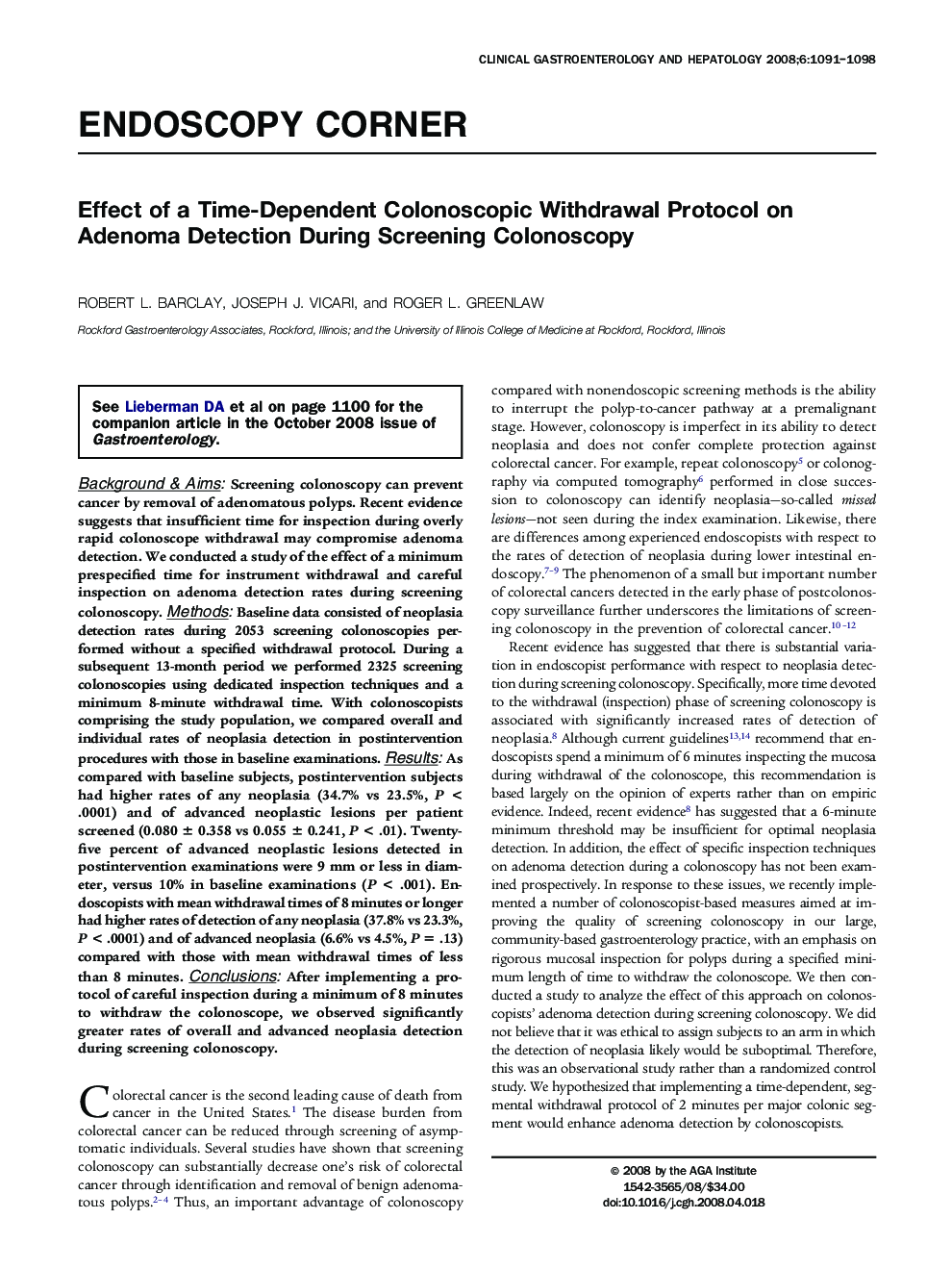| Article ID | Journal | Published Year | Pages | File Type |
|---|---|---|---|---|
| 3284570 | Clinical Gastroenterology and Hepatology | 2008 | 8 Pages |
Background & AimsScreening colonoscopy can prevent cancer by removal of adenomatous polyps. Recent evidence suggests that insufficient time for inspection during overly rapid colonoscope withdrawal may compromise adenoma detection. We conducted a study of the effect of a minimum prespecified time for instrument withdrawal and careful inspection on adenoma detection rates during screening colonoscopy.MethodsBaseline data consisted of neoplasia detection rates during 2053 screening colonoscopies performed without a specified withdrawal protocol. During a subsequent 13-month period we performed 2325 screening colonoscopies using dedicated inspection techniques and a minimum 8-minute withdrawal time. With colonoscopists comprising the study population, we compared overall and individual rates of neoplasia detection in postintervention procedures with those in baseline examinations.ResultsAs compared with baseline subjects, postintervention subjects had higher rates of any neoplasia (34.7% vs 23.5%, P < .0001) and of advanced neoplastic lesions per patient screened (0.080 ± 0.358 vs 0.055 ± 0.241, P < .01). Twenty-five percent of advanced neoplastic lesions detected in postintervention examinations were 9 mm or less in diameter, versus 10% in baseline examinations (P < .001). Endoscopists with mean withdrawal times of 8 minutes or longer had higher rates of detection of any neoplasia (37.8% vs 23.3%, P < .0001) and of advanced neoplasia (6.6% vs 4.5%, P = .13) compared with those with mean withdrawal times of less than 8 minutes.ConclusionsAfter implementing a protocol of careful inspection during a minimum of 8 minutes to withdraw the colonoscope, we observed significantly greater rates of overall and advanced neoplasia detection during screening colonoscopy.
